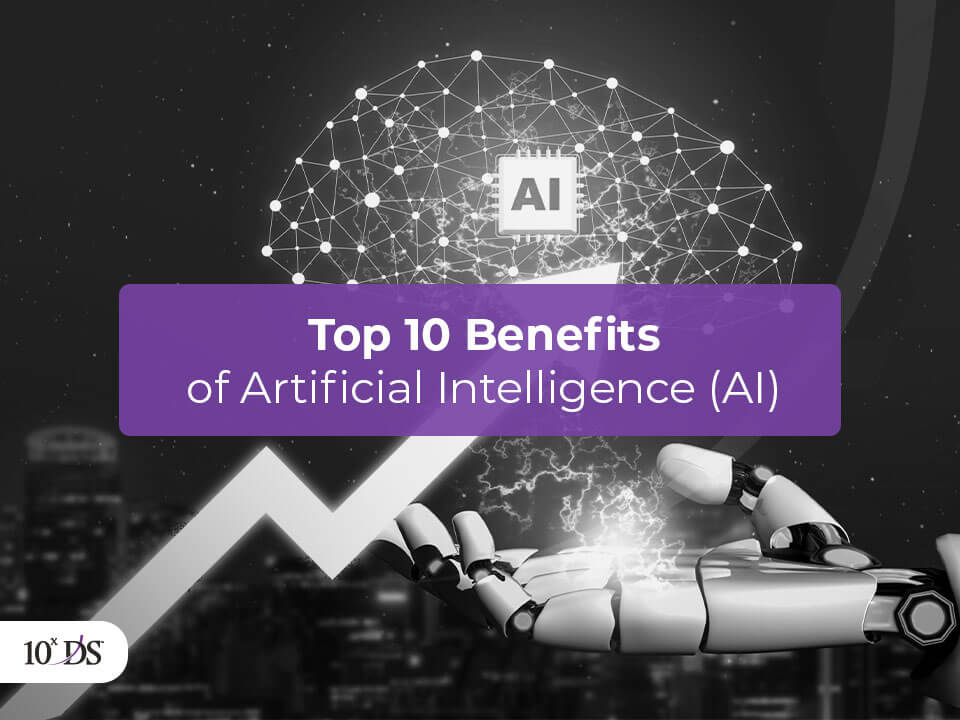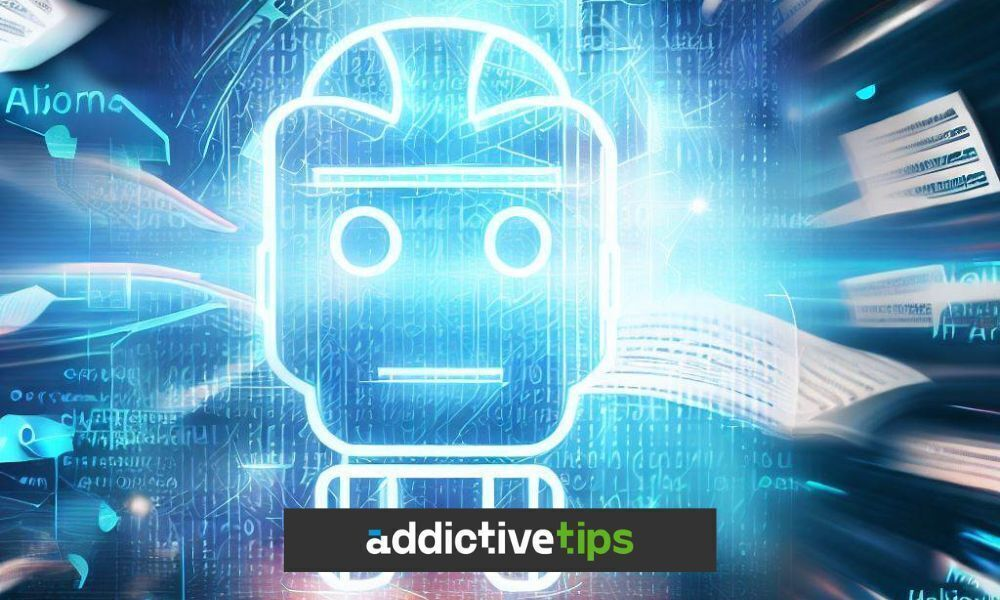The Benefits of Artificial Intelligence are profound and far-reaching, shaping the future of various industries in unprecedented ways. As we harness AI’s potential to streamline operations and enhance decision-making processes, we can unlock innovative AI-driven solutions that improve efficiency and creativity. Misconceptions surrounding artificial intelligence often cloud our judgment, leading to skepticism instead of recognition of its myriad advantages. From revolutionizing healthcare to transforming creative industries through generative AI, AI systems are redefining how we tackle challenges and view possibilities. By embracing AI, we can foster a collaborative environment where technology enhances human capabilities rather than detracting from them.
Artificial intelligence, often referred to as machine intelligence or smart technology, encapsulates a broad array of tools and systems designed to simulate human thinking and learning. This emerging tech promises to transform industries by providing innovative solutions that enhance productivity and creativity. By addressing widespread AI misconceptions, we can better appreciate its role in advancing fields such as healthcare, finance, and the arts. The impact of generative AI, for instance, showcases how technology can collaborate with human artists to produce novel works. As we define our relationship with smart technology, it’s essential to focus on its benefits alongside ethical considerations.
Understanding the Benefits of Artificial Intelligence
Artificial Intelligence (AI) presents numerous benefits across various sectors, revolutionizing industries and improving everyday life. One significant advantage is enhanced efficiency. AI-driven solutions can automate time-consuming tasks, freeing up human intelligence for more complex and creative endeavors. This capability is particularly observable in industries such as healthcare, where AI systems can analyze vast amounts of data to assist medical professionals in diagnosing diseases more accurately and providing personalized treatment plans.
Additionally, the potential of AI in decision-making processes cannot be overlooked. Using advanced algorithms, AI can predict trends, analyze consumer behavior, and optimize supply chains, which is especially valuable for businesses striving to stay competitive in today’s fast-paced market. Furthermore, AI fosters creativity in areas like music and art, where generative AI tools help artists explore new styles and concepts, blending human creativity with machine ingenuity to produce innovative works.
Debunking AI Misconceptions for a Brighter Future
Misconceptions about AI often fuel fear and resistance to its adoption. Many individuals associate artificial intelligence with dystopian futures, propelled by popular culture narratives that depict AI as a threat to humanity. However, these portrayals fail to recognize AI’s true potential and the real applications that enhance our daily lives. By educating the public about AI, its functionalities, and its benefits, we can foster a more positive perception—one where AI is seen as a collaborative partner rather than an adversary.
Moreover, initiatives that focus on public awareness can bridge the gap between understanding and acceptance. Organizations can hold workshops and create informative content that highlight successful AI applications across various industries, such as finance, education, and entertainment. As we dispel these misconceptions surrounding AI, we open the door to innovative possibilities, allowing society to fully embrace the benefits AI has to offer.
The Role of AI in Creativity and Art
AI’s influence on creativity, especially in artistic fields, is becoming increasingly significant. Tools like Midjourney and DALL-E are at the forefront of a new era in visual arts, enabling artists to generate unique images based on simple prompts. While some critics argue that AI-generated art lacks the emotional depth and personal touch of human-created works, many artists view these tools as a means of expanding their creative horizons. By incorporating AI into their artistic processes, creators can experiment with different styles and concepts, thereby pushing the boundaries of traditional art forms.
Moreover, the emergence of generative music technologies has transformed the music industry, allowing artists to compose tracks collaboratively with AI. This synergy can lead to entirely new genres and forms of expression, as seen in the collaborative works of musicians like Grimes, who utilizes generative AI to create innovative music projects. As AI continues to evolve, there will undoubtedly be a growing discourse on its ethical implications, but it is clear that it serves as an exciting collaborator in the creative landscape.
Embracing AI as a Collaborative Partner in Music
The integration of AI into the music industry is reshaping how we think about music creation and consumption. As AI algorithms become more sophisticated, they can analyze vast databases of musical patterns, styles, and trends to produce original compositions or remix existing tracks. This innovation mirrors the disruptions caused by file-sharing platforms like Napster in the past, presenting both opportunities and challenges for artists. While some musicians hesitate to embrace AI technology due to concerns about authenticity and creative integrity, others see it as a groundbreaking way to enhance their work.
Utilizing AI-driven solutions, artists can refine their sound and reach new audiences through personalized music experiences. For instance, companies like Endel create soundscapes tailored to individual listener preferences, facilitating a unique auditory experience. The collaboration between humans and AI in this manner exemplifies a progressive evolution in the music industry, where technology not only supports but enhances human creativity.
AI-Driven Solutions: Revolutionizing Efficient Workflows
AI-driven solutions are transforming the way businesses operate, streamlining processes, and enhancing productivity. In sectors like manufacturing and logistics, AI systems can predict maintenance requirements, optimize supply chain management, and even forecast demand, leading to greater cost efficiency and reduced waste. These technological advancements allow organizations to allocate human resources to more strategic and creative roles, fostering an environment of innovation and growth.
Furthermore, in customer service, AI chatbots and virtual assistants provide timely responses to inquiries, improve user engagement, and enhance customer satisfaction. This technological integration showcases how AI can facilitate smoother workflows while maintaining a human touch, ultimately benefiting both employees and customers. By adopting AI-driven solutions, companies can gain a competitive edge in the marketplace while leveraging the strengths of their workforce.
Exploring the Ethical Considerations of AI
As Artificial Intelligence continues to permeate various aspects of our lives, ethical considerations surrounding its use are paramount. Concerns about data privacy, algorithmic bias, and the potential for job displacement emphasize the importance of establishing responsible AI frameworks. Developing guidelines that prioritize transparency, accountability, and fairness will be key to ensuring that AI technologies serve the collective good rather than exacerbate social inequalities.
Moreover, collaboration across industry, government, and academia will be crucial in creating robust regulations that address these ethical challenges. By actively engaging in discussions and research focused on the implications of AI, stakeholders can chart a path that embraces technological advancements while mitigating risks. Striking a balance between innovation and ethical responsibility will determine how society reaps the benefits of AI in a just and equitable manner.
AI and the Future of Job Markets
The impact of AI on job markets presents a complex narrative of opportunity and challenge. While there is apprehension regarding job displacement, it is essential to recognize that AI can complement human roles rather than replace them entirely. In numerous sectors, automation can relieve employees of mundane, repetitive tasks, allowing them to concentrate on higher-level thinking and creativity. By embracing reskilling and upskilling initiatives, the workforce can adapt to a landscape where collaboration with AI becomes crucial.
However, this transition requires proactive strategies from both employers and policymakers to ensure that everyone benefits from this technological shift. Creating educational programs focused on digital literacy and AI fluency will equip the workforce with the necessary skills to thrive in an AI-enhanced economy. Ultimately, fostering a culture of adaptability and continuous learning will empower employees to harness the capabilities of AI while contributing to sustained economic growth.
Navigating the Reality of AI Hype and Usage
In the wake of rapid advancements in AI technologies, differentiating between hype and actual utility is increasingly essential. Misconceptions surrounding AI often stem from exaggerated portrayals in media and popular culture, leading to an inflated perception of its capabilities. In reality, while AI has transformative potential, it is still a tool that must be leveraged thoughtfully and ethically by humans. Ensuring that AI complements human intelligence rather than attempting to overshadow it is crucial for maximizing its effectiveness.
Moreover, staying updated with reliable resources and expert insights can help consumers and businesses navigate the evolving landscape of AI. Engaging in informed discussions about the implications of AI usage—both positive and negative—will enable stakeholders to embrace innovation while remaining grounded in reality. Through this approach, we can cultivate a more balanced understanding of AI and its role in shaping our future.
Fostering a Culture of Collaboration Between Humans and AI
The successful implementation of AI technologies hinges on fostering a culture of collaboration between humans and machines. This partnership allows for leveraging unique strengths—AI excels in processing vast amounts of data, while humans bring creativity, emotional intelligence, and ethical judgments. By treating AI as a collaborative partner, industries can unlock new levels of innovation, creativity, and efficiency. Encouraging open dialogue between technologists, artists, and business leaders can facilitate the exploration of AI’s potential without losing sight of the human element.
Additionally, organizations should prioritize creating diverse, interdisciplinary teams that encompass a wide range of perspectives and expertise. This approach not only enhances innovation but also helps address ethical considerations from multiple angles. By cultivating an environment where collaboration thrives, we can harness the full potential of AI to drive progress and empower individuals in various fields, paving the way for a future rich in possibilities.
Frequently Asked Questions
What are the benefits of artificial intelligence in various industries?
Artificial intelligence (AI) offers numerous benefits across industries, including increased efficiency, improved decision-making, and enhanced analytical capabilities. AI-driven solutions can automate routine tasks, allowing human workers to focus on more complex and creative endeavors. For example, in healthcare, AI can assist in early diagnosis and personalized treatment plans, significantly improving patient outcomes.
How does AI in creativity reshape artistic expression?
AI in creativity is transforming artistic expression by providing tools that enhance the creative process. Generative AI applications like DALL-E and Midjourney enable artists to create stunning visuals quickly, while AI algorithms can assist in music production, leading to innovations in sound and composition. This collaboration between human creativity and AI technology opens up new realms of possibility in the arts.
What misconceptions about AI hinder its acceptance and utilization?
Many misconceptions about AI, including fears of job displacement and a portrayal of AI as a threat, can hinder its acceptance and utilization. Understanding the true nature of AI—an enabling technology that augments human capabilities—can help dispel these fears. Public education and awareness are crucial in showcasing the potential benefits of AI-driven solutions in various sectors.
How is generative AI impacting the music industry?
Generative AI is significantly impacting the music industry by enabling artists to experiment with sound in innovative ways. Tools like Grimes’ Elf Tech allow users to create music using AI-driven software, making music production more accessible. This disruption mirrors past technological advancements and suggests a new era of collaboration between musicians and AI.
What role does AI play in enhancing decision-making processes?
AI enhances decision-making processes by providing data-driven insights and predictive analytics. Organizations can leverage AI-driven solutions to analyze large datasets, identify trends, and make informed decisions quickly. This capability is especially beneficial in fields like finance, healthcare, and marketing, where timely and accurate decision-making can lead to improved outcomes.
| Key Insight | Detail |
|---|---|
| Rise of AI Anxiety | 39% of respondents from a 2022 World Economic Forum survey expressed nervousness over AI products. |
Summary
The benefits of artificial intelligence are transforming industries and enhancing productivity across the globe. With the potential to improve decision-making and efficiency, AI allows for innovation that can lead to remarkable advancements in healthcare, finance, arts, and more. By understanding and addressing the fears surrounding AI, we can shift towards a more optimistic view, recognizing that AI’s capabilities can work alongside human creativity, ultimately driving progress and empowerment. To unlock AI’s full potential, we must prioritize education and ethical considerations, fostering a collaborative relationship with this powerful technology.




